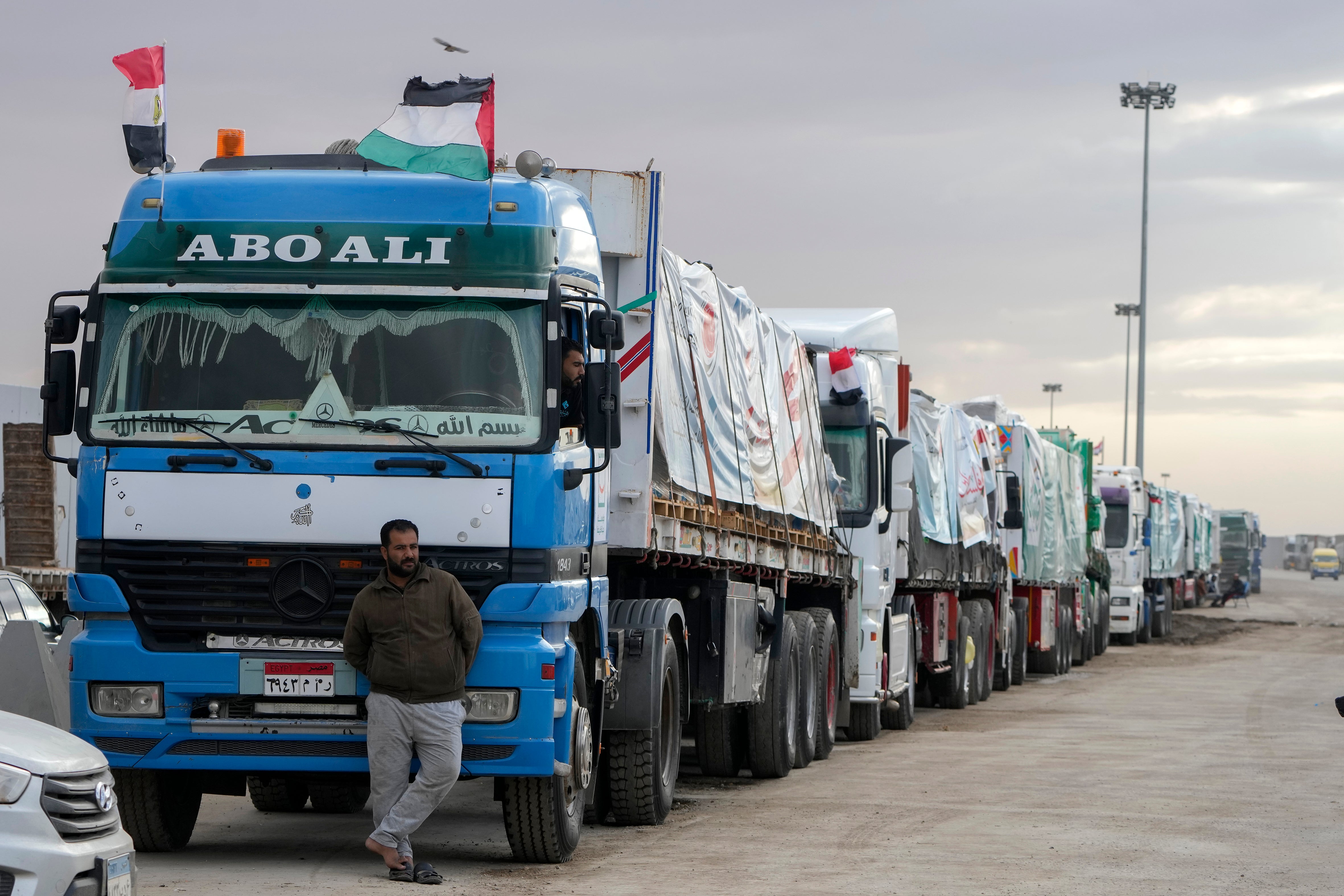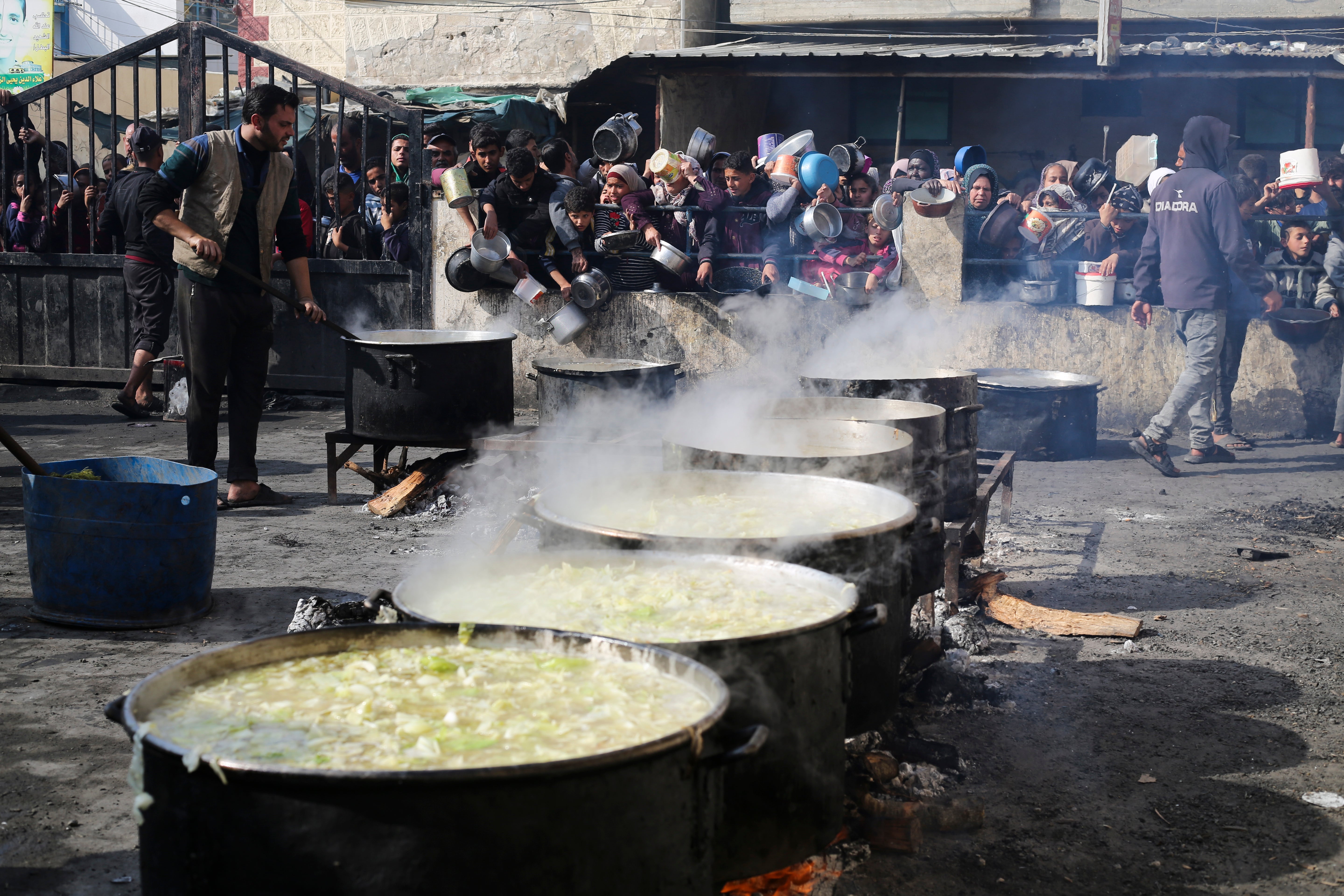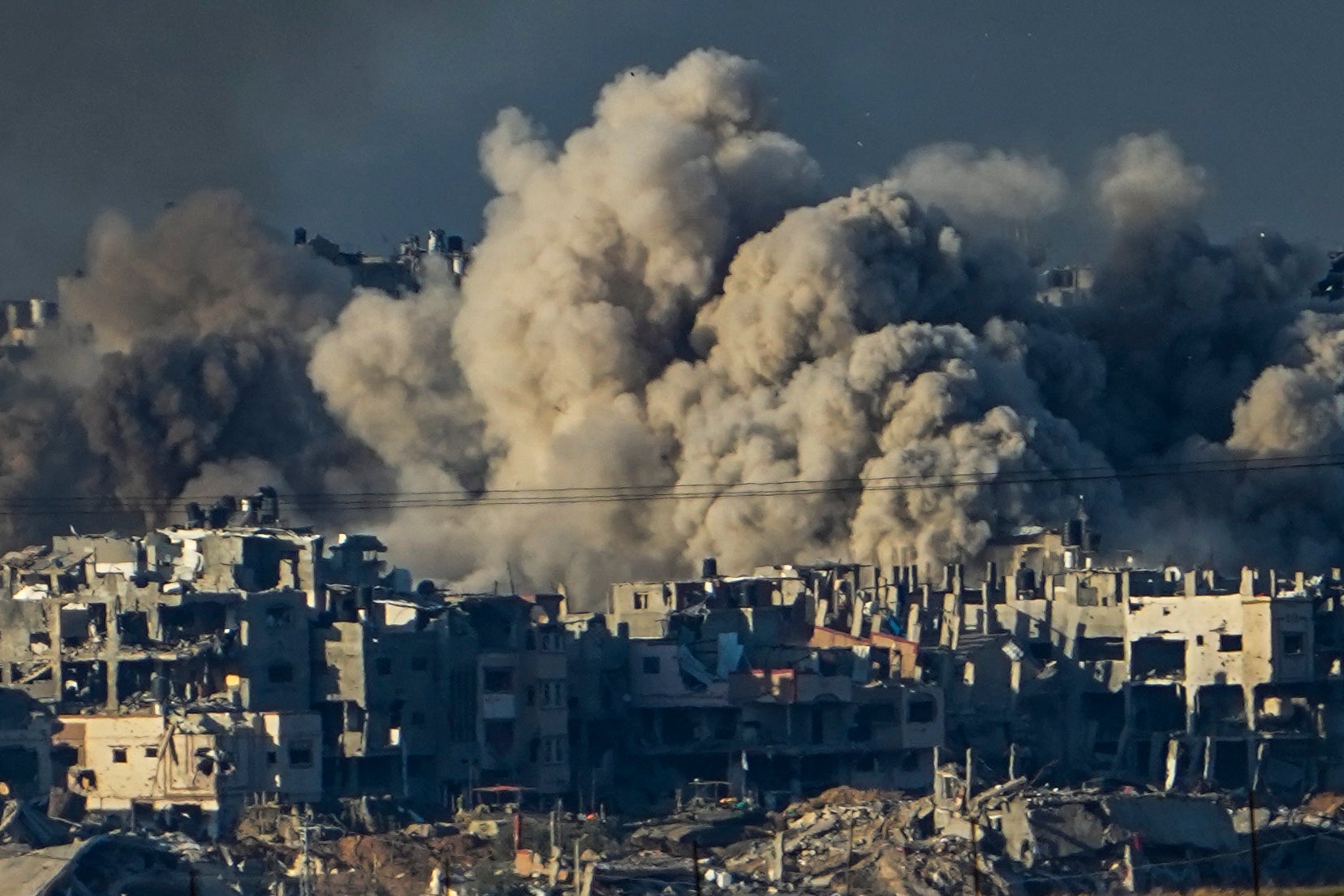UN agency calls on Israel to allow its humanitarian aid into Gaza after deliveries cancelled
Intense bombardment, restrictions on movement and fuel shortages are stopping aid reaching Gaza, said the WHO
Your support helps us to tell the story
From reproductive rights to climate change to Big Tech, The Independent is on the ground when the story is developing. Whether it's investigating the financials of Elon Musk's pro-Trump PAC or producing our latest documentary, 'The A Word', which shines a light on the American women fighting for reproductive rights, we know how important it is to parse out the facts from the messaging.
At such a critical moment in US history, we need reporters on the ground. Your donation allows us to keep sending journalists to speak to both sides of the story.
The Independent is trusted by Americans across the entire political spectrum. And unlike many other quality news outlets, we choose not to lock Americans out of our reporting and analysis with paywalls. We believe quality journalism should be available to everyone, paid for by those who can afford it.
Your support makes all the difference.The World Health Organisation (WHO) has called on Israel to allow it to deliver humanitarian aid to Gaza after its latest mission was cancelled due to security concerns.
At a virtual press conference on Wednesday, the WHO’s director-general Tedros Adhanom Ghebreyesus said it was the sixth mission to northern Gaza the UN agency has abandoned.
He said Israel had not approved requests to visit the territory nor provided assurances over security since its last visit on 26 December.

“Intense bombardment, restrictions on movement, fuel shortage and interrupted communications make it impossible for WHO and our partners to reach those in need,” he said. “We call on Israel to approve requests by WHO and other partners to deliver humanitarian aid.”
Israel has so far spent more than three months on an offensive launched in response to a deadly rampage by Hamas in southern Israel on 7 October last year.
The bombing campaign in Gaza has left most of the 2.3 million inhabitants of the territory homeless, with homes and businesses flattened and infrastructure in tatters.

Israel has killed more than 23,000 Palestinians in Gaza since launching its offensive, Hamas says. Gaza‘s health authorities estimates about 40 per cent of those killed were aged under 18.
It comes just days after Martin Griffiths, the UN’s undersecretary-general for humanitarian affairs said that the people in Gaza face “daily threats to their very existence” and that a public health disaster is unfolding.
He said that thousands of people, mostly women and children, have been killed or injured, families are sleeping in the open as temperatures plummet, and areas where Palestinians were told to relocate have been bombed.
And the few partially functioning hospitals are overwhelmed and critically short of supplies, infectious diseases are spreading, and amid the chaos some 180 Palestinian women are giving birth every day.

He said: “People are facing the highest levels of food insecurity ever recorded (and) famine is around the corner...Gaza has simply become uninhabitable.”
In the press conference the WHO added that only 15 hospitals in Gaza remain functional, even partially, and the deteriorating conditions are a perfect breeding ground for infectious disease.
For example, the number of diarrhoea cases among children under five was 20 times higher in November 2023 compared to the average of the previous year, said Richard Peeperkorn, WHO representative in Gaza.
He added that he was hopeful a WHO mission planned for Thursday to northern Gaza could go ahead. But he added that about 16 or 17 of 21 planned missions from the wider U.N. have already been cancelled so far this month.
Mike Ryan, WHO emergencies director, said it would be a “gargantuan” task to restore the public health system in Gaza even with a ceasefire.
COGAT, an Israeli Defence Ministry agency that coordinates aid deliveries with the United Nations and humanitarian groups, has insisted essentials were still being allowed through.
“We are not refusing anything that is underneath four headlines: food, water, medical supplies and shelters,” Colonel Elad Goren of COGAT said during a news briefing on Friday. “All of those are entering every day.”
COGAT said 11,220 tonnes of medical supplies, including X-ray machines, CT machines and oxygen generators for hospitals had entered Gaza, as well as filters for use in a water desalination plant and mobile desalination filters.

Join our commenting forum
Join thought-provoking conversations, follow other Independent readers and see their replies
Comments